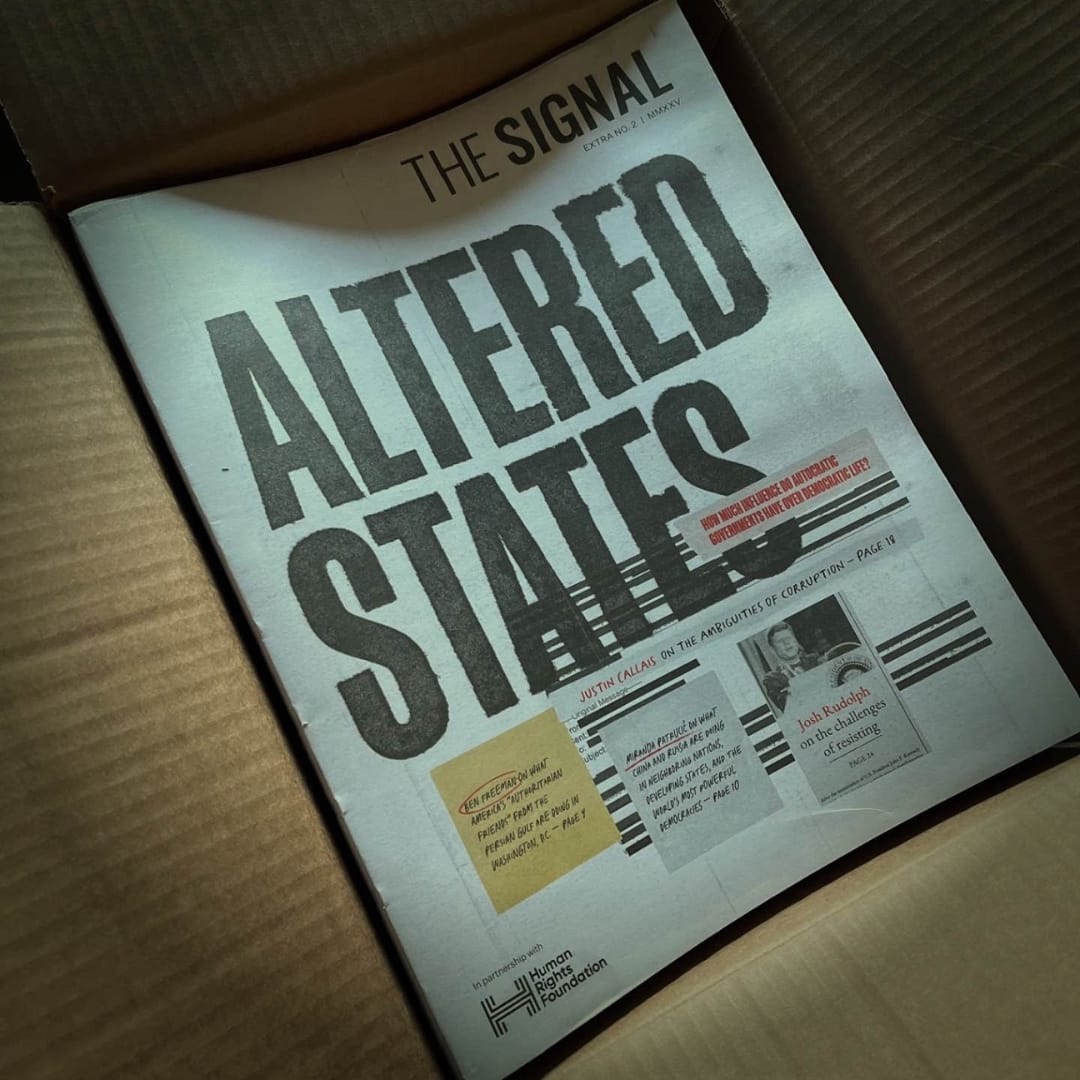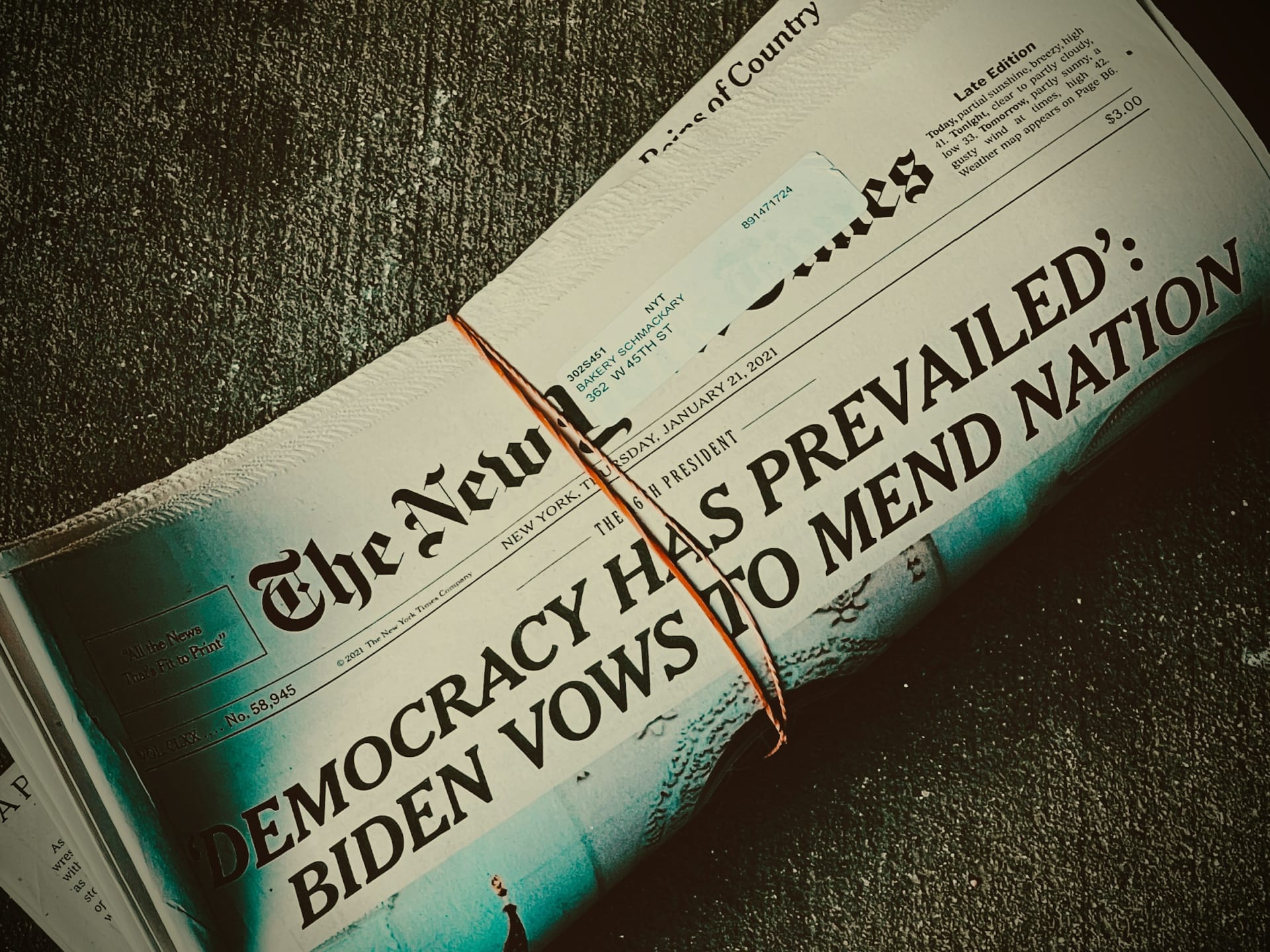Recently in The Signal: Why is collaboration intensifying among the world’s most powerful autocracies? Lucan Way on what unites and divides China, Iran, North Korea, and Russia.
Today: Why are so many Americans so suspicious of the news media? Benjamin Toff on information overload, social media, and partisan polarization.
+ Why is Donald Trump, who campaigned as an anti-war candidate, using so much warlike language with other countries—and bombing targets in Yemen?
And first: Developments we’re tracking for this week’s despatch …
The U.S. pushes Ukraine on a peace deal
U.S. President Donald Trump criticized Ukrainian President Volodymyr Zelenskyy on Wednesday, blaming him for not reaching a peace deal with Russia. On Tuesday, Zelenskyy said that Ukraine couldn’t recognize Russian control over Crimea—which Moscow seized in 2014 but is still internationally recognized as part of Ukraine. On Wednesday, Trump said on social media that Zelenskyy’s position was “very harmful to the Peace Negotiations with Russia,” adding that Crimea “was lost years ago … and is not even a point of discussion.” Trump also said that Zelenskyy had “no cards to play” in peace talks. What now?
- The White House has proposed a peace deal that would give Moscow full control over Crimea and parts of four regions in Eastern Ukraine that Russian armed forces now control.
- It appears Ukraine would be willing to give effective control of this territory to Moscow—but without formally recognizing Russian sovereignty over it. Kyiv also wants Western security guarantees—which it sees as protection against a potential future attack from Russia—in exchange for giving up the land.
- Media reports say Russia’s President Vladimir Putin offered to accept a ceasefire on the current front lines and could give up its claims to the parts of the four regions in Eastern Ukraine that it hasn’t taken by force. It looks like the U.S. is asking Ukraine to accept Putin’s terms.
This all seems to put Zelenskyy in a very difficult place. Public-opinion polls in Ukraine show growing support for ending the war—but a refusal to formally surrender territory to Russia. Zelenskyy’s major European backers—the U.K., France, and Germany—all seem to back his position on refusing formally to recognize Russian sovereignty over parts of Ukraine. They also seem willing to give him security guarantees—potentially even including European troops on Ukrainian soil. The question now is: What will Zelenskyy do when the U.S. and Europe are pushing him in opposite directions?

The trade-war era, cont.
American stock markets rose sharply on Wednesday, with a major index gaining about 2 percent after 2.5 percent on Tuesday. Tech stocks rose even more, and markets in Asia and Europe also climbed. The value of the U.S. dollar against a basket of other currencies grew, as did the prices of U.S. government bonds. What’s behind the jump?
- U.S. President Donald Trump said on Tuesday he had “no intention” of firing Jerome Powell, the chair of the U.S. Federal Reserve, days after calling Powell “a major loser” on social media and threatening to remove him. Markets then fell on Monday—apparently on account of investors being worried about losing Powell, which would be an unprecedented move.
- Trump also said on Tuesday that the U.S. tariff rate against Chinese goods, which is now 145 percent, would “come down substantially—but it won’t be zero.” The president also said he would be “very nice” to Beijing in potential trade talks.
- Until the gains of the past two days, the Dow Jones stock index was on track for its worst April since 1932, during one of the worst stretches of the Great Depression. The S&P 500, another major index, meanwhile recorded its worst performance at the start of a new presidency in 100 years.
It seems Trump and other cabinet officials have decided to take a new, more cooperative tone because of the turmoil in global markets since Trump declared a round of global tariffs on April 2. After that, investors sold off massive quantities of U.S. stocks, dollars, and bonds. At the same time, it seems the administration hasn’t gained anything from the trade war: It hasn’t closed any new trade deals, nor have any companies announced plans to relocate significant production to the U.S. on account of the tariffs.
This edition, produced in partnership with the Human Rights Foundation, features conversations—with Ben Freeman, Miranda Patrucić, Justin Callais, and Josh Rudolph—on how authoritarian states build political influence in the U.S., why dictators keep disrupting so many other countries, why autocratic corruption is such a problem for democratic life, and what democracies can do about it.

Meanwhile …
- On Wednesday, India closed its main border crossing with Pakistan, canceled a longstanding water-sharing treaty on the Indus River, and banned Pakistanis from using a special visa-waiver program to enter India, one day after an attack by Islamic militants in Kashmir killed 26 tourists and wounded 17 others. Indian officials have linked the attack to Pakistan, but Islamabad denies any connection. “Militants in the Indian-controlled portion of Kashmir have been fighting New Delhi’s rule since 1989. Many Muslim Kashmiris support the rebels’ goal of uniting the territory, either under Pakistani rule or as an independent country.”
- Jordan banned the Islamist group the Muslim Brotherhood on Wednesday—one week after Jordanian authorities arrested 16 alleged members and accused them of getting military training in Lebanon, making explosives, and plotting to strike domestic targets with rockets and drones. The Brotherhood says it has nothing to do with any such plots. The group’s political arm won almost a quarter of parliamentary seats in elections last September—and remains the biggest and most popular opposition party. “Rights groups have warned of a steady erosion of civic space in Jordan in recent years, with Freedom House downgrading the country from ‘partially free’ to ‘not free’ in 2021 due to its crackdown on civil society.”
- Researchers at Toshiba Europe sent messages encrypted using quantum physics over 250 kilometers (150 miles) on a German telecommunications network—the first time that quantum mechanics has been used to encrypt messages in a standard network, according to a paper published in the journal Nature on Wednesday. The breakthrough is significant because messages encrypted using quantum technology are apparently impervious to hacking. “Quantum networks’ potential resilience to hackers has sparked intense worldwide research interest including in China, which is developing a global, satellite-based quantum communications system.”
‘Trust nexus’
Why are so many Americans so suspicious of the news media? Benjamin Toff on news consumption, social media, and partisan polarization.

Books / from the member’s despatch
- ‘Kinetic diplomacy.’ Why is Donald Trump, who campaigned as an anti-war candidate, using so much warlike language with other countries—and even bombing targets in Yemen? Monica Duffy Toft’s and Sidita Kushi’s Dying by the Sword: The Militarization of US Foreign Policy.
Members play a crucial role in backing our mission to develop a new genre of independent current-affairs coverage—for less than one fine cup of coffee every couple of weeks. Support The Signal.
Coming soon: new member’s despatch Saturday morning …

